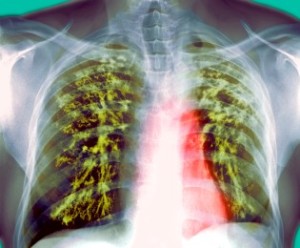- Home
- Editorial
- News
- Practice Guidelines
- Anesthesiology Guidelines
- Cancer Guidelines
- Cardiac Sciences Guidelines
- Critical Care Guidelines
- Dentistry Guidelines
- Dermatology Guidelines
- Diabetes and Endo Guidelines
- Diagnostics Guidelines
- ENT Guidelines
- Featured Practice Guidelines
- Gastroenterology Guidelines
- Geriatrics Guidelines
- Medicine Guidelines
- Nephrology Guidelines
- Neurosciences Guidelines
- Obs and Gynae Guidelines
- Ophthalmology Guidelines
- Orthopaedics Guidelines
- Paediatrics Guidelines
- Psychiatry Guidelines
- Pulmonology Guidelines
- Radiology Guidelines
- Surgery Guidelines
- Urology Guidelines
Statins significantly reduce risk for active tuberculosis

Statins use may decrease the risk for active tuberculosis (TB), according to a new study presented on the Tuberculosis and Other Mycobacterial Infections at IDWeek 2018 held in San Francisco, California. However, the protective effect of statins against TB was attenuated by diabetes.
Statins are lipid-lowering agents that are widely used to lower cholesterol levels and cardiovascular disease risk. Previous studies have shown that because of their anti-inflammatory and immunomodulatory properties, statins may decrease the risk for infectious diseases and infection-related mortality. More specifically, these properties may affect the development of TB. However, the association between statin use and active TB disease remains unclear.
Min-Chul Kim and Sung-Han Kim, University of Ulsan College of Medicine, Seoul, Korea, Republic of (South) conducted the study to assess the association between statins and the risk of active TB with propensity score matching.
The researchers used South Korea's National Health Insurance database of approximately 1 million people and its subset database of the “medical check-up” population of approximately 570,000 people, which was representative of the entire population of the country, to establish their cohort sample for this study. After propensity score matching, 26,036 individuals who used statin medications and 26,036 individuals who did not use statins were monitored and analyzed for the development of active TB from 2003 to 2013.
Also Read: Landmark changes in MDR-TB treatment regimens by WHO
Key Findings:
- Over the duration of the study, 150 active TB cases in 31,645 person-years (4.74 per 1000 person-years; 95% CI, 3.98-5.50) developed in individuals who used statins and 902 active TB cases in 153,401 person-years (5.88 per 1000 person-years, 95% CI, 5.50-6.26) developed in individuals who did not use statins.
- Individuals who used statins showed a significantly lower risk for TB than those who did not, with a hazard ration (HR), .78 (95% CI, .65-.93; P =.006).
- A subgroup analysis demonstrated that statin use reduced the risk for TB significantly in individuals without diabetes (HR .73; 95% CI, .56-.95; P=.018), but not in individuals who have diabetes (HR .83; 95% CI, .54-1.28; P =.40).
"These epidemiologic findings provide strong evidence that statin use decreases the risk of active TB. The protective effect of statins against TB was attenuated by diabetes," concluded the authors. Further studies about the effect of statins on TB incorporating experimental and clinical researches are required.
For further reference follow the link: Statins decrease the risk of active tuberculosis: a propensity score-matched analysis.

Disclaimer: This site is primarily intended for healthcare professionals. Any content/information on this website does not replace the advice of medical and/or health professionals and should not be construed as medical/diagnostic advice/endorsement or prescription. Use of this site is subject to our terms of use, privacy policy, advertisement policy. © 2020 Minerva Medical Treatment Pvt Ltd